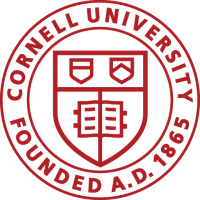Explore Boyce Thompson Institute
 Boyce Thompson Institute
Boyce Thompson Institute
Working from a sincere interest in issues of social justice, William Boyce Thompson founded the Boyce Thompson Institute (BTI) in 1924, believing that basic plant research could lead to real societal benefit. BTI’s fifteen faculty-run laboratories and greenhouse facilities are staffed by more than 110 researchers from more than forty countries. The research out of these laboratories has the potential to improve important food crops, demystify plant and human immune systems, and reveal alternative, sustainable sources of energy. Along with its research, BTI prioritizes environmental stewardship, and outreach to teachers, students, and community members.
Learn more about the research and impact of BTI over the years by browsing our Annual Reports.
Mission
To advance and communicate scientific discovery in plant biology to improve agriculture, protect the environment, and enhance human health.
Vision
Inspired by how plants work for humanity.
Values
Integrity, Mutual Respect, Excellence, Collaboration and Innovation
BTI and Cornell
BTI is an independent, nonprofit institution affiliated with Cornell University and located on its Ithaca campus, near the College of Veterinary Medicine on Tower Road. A map is available here and information about visiting Cornell is available here.
By the early 1970s, BTI had been a recognized leader in agricultural and environmental scientific research for many years. BTI became interested in building stronger ties with a major research university. To keep BTI in New York State, Ithaca community leaders, the New York State legislature, and BTI and Cornell leadership worked together to bring the institute to Cornell University. In 1974, $8.5 million was proposed for construction of BTI-designated laboratories and greenhouse facilities on campus at Cornell University. BTI accepted the offer from New York State, the building was finished in 1978, and BTI headquarters relocated from Yonkers to Ithaca.
 Cornell has a number of affiliations with independent institutes and programs, all of which have their own agreements with the university. BTI’s relationship with Cornell was born from a mutual interest in developing, among other things, a base of knowledge relating to problems in resource production and management. While BTI maintains an identity as an independent nonprofit organization with its own mission, values, and endowment, its location on university campus facilitates a collaborative association with Cornell’s New York State College of Agriculture and Life Sciences (CALS). A number of BTI research scientists are adjunct, assistant, associate, and senior professors at Cornell in areas such as plant pathology, plant biology, entomology, plant breeding and genetics, molecular biology and genetics, and chemistry and chemical biology. Additionally, many of the undergraduate and all of the graduate students working in BTI laboratories are enrolled in degree programs at Cornell.
Cornell has a number of affiliations with independent institutes and programs, all of which have their own agreements with the university. BTI’s relationship with Cornell was born from a mutual interest in developing, among other things, a base of knowledge relating to problems in resource production and management. While BTI maintains an identity as an independent nonprofit organization with its own mission, values, and endowment, its location on university campus facilitates a collaborative association with Cornell’s New York State College of Agriculture and Life Sciences (CALS). A number of BTI research scientists are adjunct, assistant, associate, and senior professors at Cornell in areas such as plant pathology, plant biology, entomology, plant breeding and genetics, molecular biology and genetics, and chemistry and chemical biology. Additionally, many of the undergraduate and all of the graduate students working in BTI laboratories are enrolled in degree programs at Cornell.


